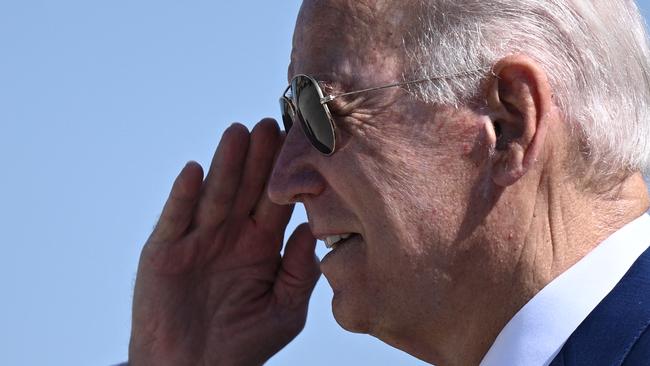
The idea that August is a quiet month when news takes a vacation has always been a myth of journalism, devised mainly to justify European levels of summer sloth by its more superannuated practitioners.
At least since British troops burned Washington in 1814, the guns of August – figurative and literal – have reverberated with great consequence through the succeeding months and years.
So of course I disappear to a languorous Europe for two weeks and return to discover an America transformed.
If you believe the breathless reporting, American democracy died this month when a former president was raided by the FBI at the behest of his successor’s Justice Department.
Or if you prefer, the republic perished when a former president violated the law and his oath of office by hoarding highly confidential national security material and other top-secret documents in his Florida home.
We also learned in August that the American economy has already been rescued by the Inflation Reduction Act, which, with apparently “zero inflation” last month, must have become the most immediately effective piece of legislation in history – like a time machine, it worked retrospectively.
Or, if you prefer, the inflation outlook is so dire that the Federal Reserve chairman feels compelled to terrify financial markets with a promise of monetary pain to come.
This was the month when we were told by the President that the Republican Party stands for something “like semi-fascism”.
That sounds important, if only we could figure out what it means. Is a semi-fascist a halfhearted authoritarian?
Can you be 50 per cent bigoted? Would semi-fascism have settled in the 1930s for Czechoslovakia but left Poland alone? We await answers.
It’s easy to mock the extremism of the routine language of our politicians and media in which every event is depicted as an existential threat or a civilisation-saving opportunity.
But the hyperbole not only fails to sift the daily political chaff from the wheat of genuinely significant events; it all further frays the bonds of trust that are the essential fabric of a functioning democracy.
Our hyperactive political media classes conduct a kind of journalistic alchemy every day: converting the base metal of a set of scarcely known and selectively leaked half-facts into the fast-setting precious metal of truth. When more facts emerge, their fakery is exposed, leaving anyone who’s trusted in the process vowing never to believe anything else.
Take the Mar-a-Lago raid. It can’t possibly be the case that any law enforcement action against a former president is ipso facto evidence of an abuse of justice by his successor. If you believe that, you literally believe that a former president is above – or at least beyond – the law.
Sure enough, as more facts emerge, the picture becomes more complex than those initial howls of outrage suggested. Perhaps a president can declassify whatever he wants, but do we really think it proper to have the sensitive information that results – with serious continuing implications for national security – residing among boxes of tchotchkes in a famously open and widely visited private residence?
You can challenge the wisdom of using law enforcement to limit this risk, but the legitimacy?
But because we have spent five years learning to trust scarcely a single word that emanates from anonymous “officials” and the partisan media that faithfully reports their words, we are forgiven for moving instantly to assume the very worst motivations.
Those who are understandably suspicious of the current administration and its allies rally to the former president’s cause.
Still, the really big news of this August, if polling is to be believed, is the miraculous resurrection of Joe Biden’s presidency and the Democratic Party’s fortunes.
His approval rating is up five points in a month in the RealClearPolitics average. Thanks to a slew of candidates about whose merits some of us have expressed doubt, winning the Senate in November looks tough for Republicans, and at least one survey suggests the once rock-solid GOP margin in the House of Representatives is narrowing uncomfortably.
There are lots of proffered explanations from a delighted media crowd for this reversal, none of them completely convincing. The Supreme Court’s Dobbs decision to reverse the landmark Roe v Wade ruling on the right to abortion may have energised Democrats and tilted some independents away from Republicans.
A couple of legislative “successes”, on gun control and the green energy/tax hike package disguised as inflation reduction, may have enthused previously underwhelmed progressive voters.
But, ignoring for a moment my own injunction to stop leaping to conclusions on the basis of half-known facts, consider this: It is hard to escape the juxtaposition of two things that happened in August – events (or deep-state enemies?) conspired to enhance dramatically Donald Trump’s chances of being the Republican nominee in 2024. And the party’s electoral fortunes seem to have declined sharply.
Make of that what you will as the dog days of summer give way to the horse race of autumn.
The Wall Street Journal



